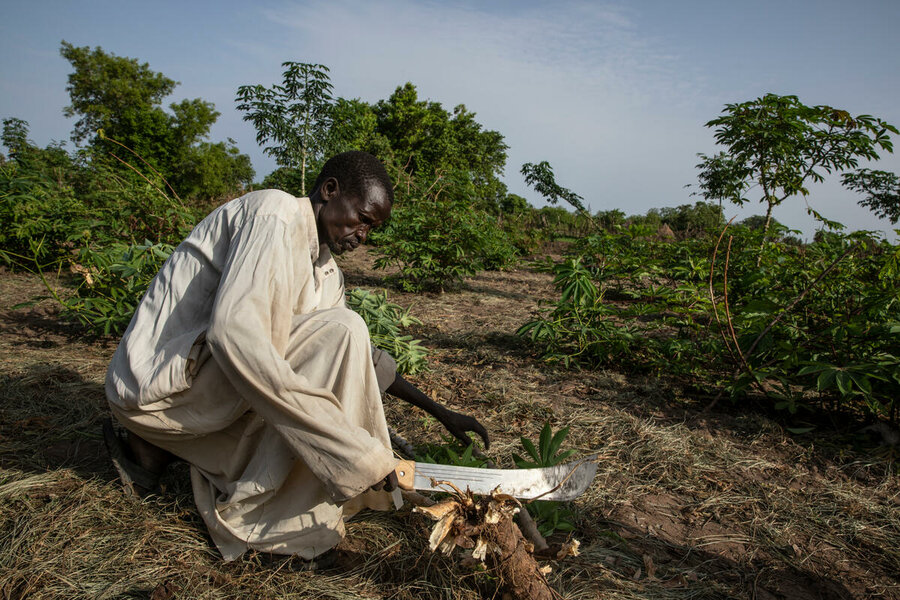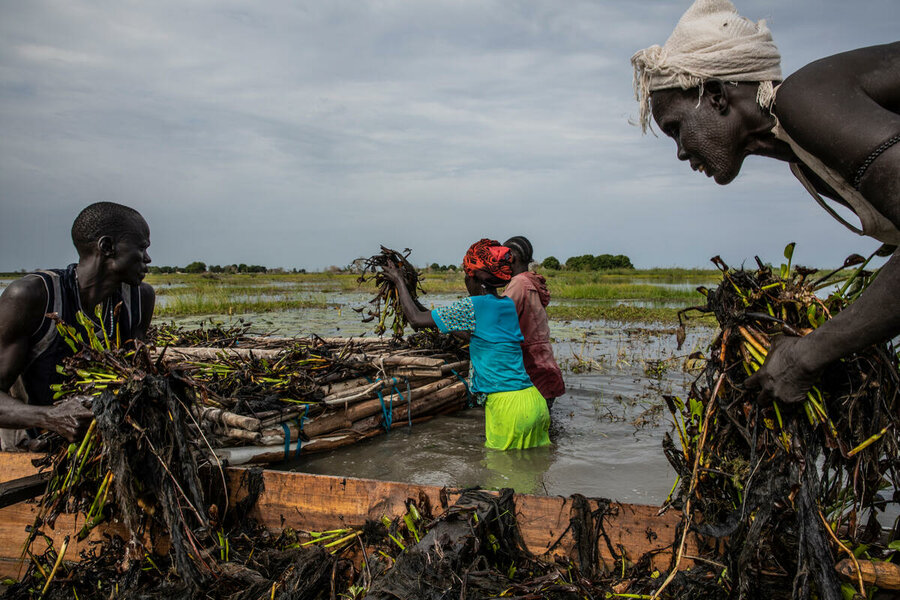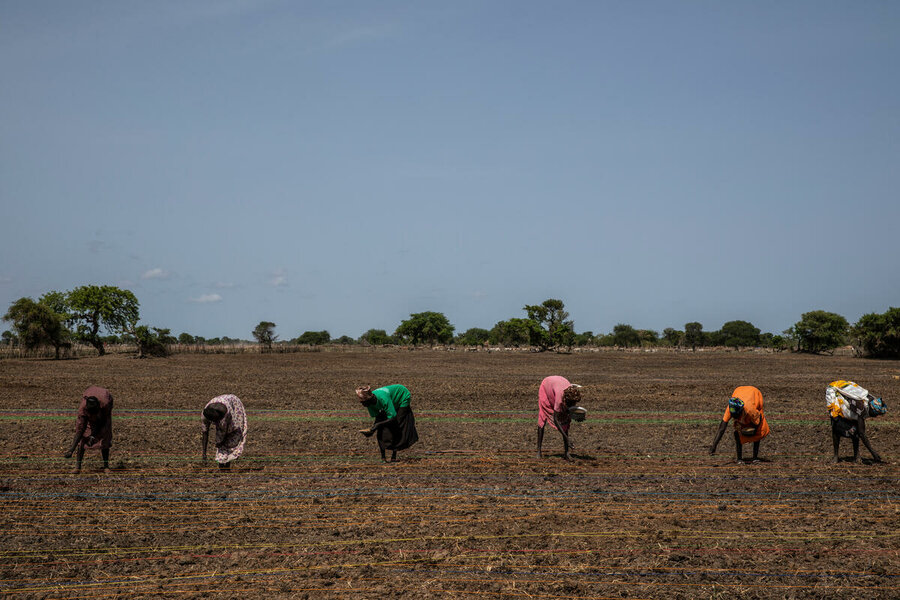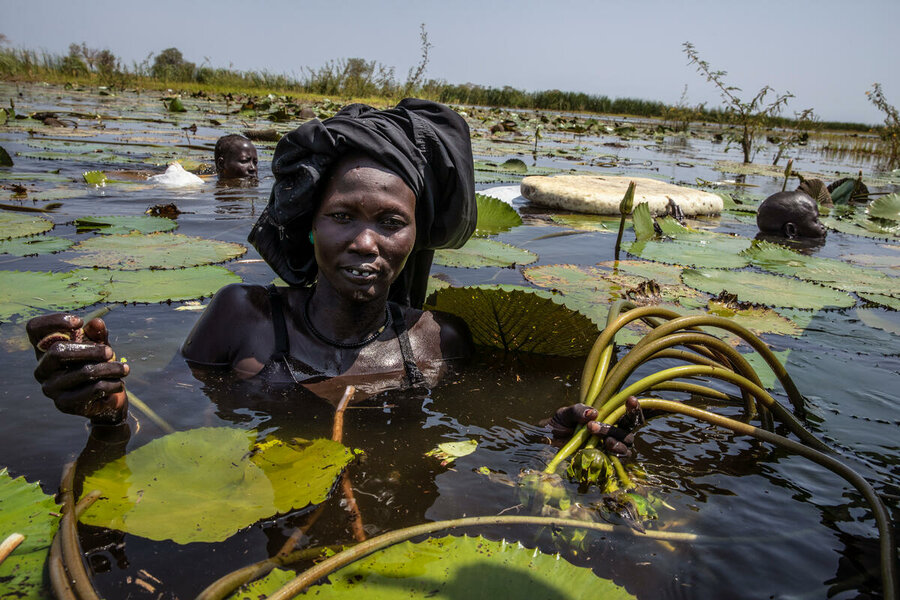Humanitarian aid alone is not enough for restive South Sudan
Climate change affects us all, but some of the most vulnerable to its fallout are in sub-Saharan Africa. For millions on the continent, extreme weather patterns like drought, floods and major storms have become a feature of daily life.

Much of the world's humanitarian aid in Africa focuses on emergency assistance — putting out the fires of hunger and conflict in places like South Sudan — but more is needed for initiatives that focus on climate adaptation.
As a humanitarian aid worker, I have realized that the problems plaguing vulnerable communities will not go away until climate adaptation is front and centre. This means continuing with emergency assistance that saves lives and prevents the scourge of famine, while also scaling up on the climate-resilience front.
Communities across the continent living in crisis and enduring climatic shocks such as scorched earth, drowned land, failed harvests, and obliterated infrastructure are finding makeshift solutions to adapt to their changing climate. The World Food Programme (WFP) in South Sudan not only provides life-saving assistance but also runs capacity building and livelihoods projects to help communities find lasting solutions to their problems.
Floodwaters aren't receding
In my work in South Sudan, I’ve witnessed the innovative spirit of people living on the front lines of the climate crisis and its potential to bring peace and development to the world’s youngest nation.
Their efforts must be buttressed with consistent and predictable funding from governments and individuals looking to help ease the drastic impact of climate change on vulnerable populations.

South Sudan is heating up twice as fast as the global rate and is one of the most affected places on earth by climate change. Since 2019, farming and pastoralist communities have struggled with persistent, devastating floods that have altered the forms and features of their land.
The country’s wetlands — known as The Sudd — have permanently expanded to surrounding farmlands and pastures, drowning crops and leading to mass livestock deaths and massive internal displacement of people. Millions have been pushed into severe hunger while tens of thousands struggle to survive in famine-like conditions.
My frequent visits to flooded zones of the worst-hit parts of South Sudan have made one thing clear: the floodwaters are not receding. At least not fast enough for the land to dry up, for waterlogged soil to drain and for displaced families to return to what is left of their homes and villages.

Billions of dollars have been invested to provide immediate, life-saving relief but the onslaught of the climate crisis and ongoing sub-national conflict have derailed development.
To unlock South Sudan’s future, donors must support small-scale farming systems and family farmers who live off the land. WFP’s experience shows that, when given the chance, these farming communities and local food producers can thrive. Even in contexts as complicated as South Sudan, these grassroots investments yield positive results.
Supporting local solutions
In Warrap State, small-scale farmers in Tonj South are adapting to their changing climate by turning the floodplains engulfing their village into rice fields. With training WFP on agronomical best practices and by providing quality seeds, the community worked hard to build dykes to protect their land against the floods and dug pits to catch rainwater to secure access to water throughout the year.
For three straight years, and despite the floods engulfing other parts of South Sudan, the farming community of Tonj South has grown its own food in sufficient quantities and closed the hunger gap — a goal most rural households would struggle to achieve without livelihoods and resilience support.
One of those farmers is John Mabior, who had almost given up on his community and planned to leave home. He has now more than doubled his harvest of sorghum, rice, cassava and beans among other crops and started his own business selling the surplus of his labour.
His success has inspired the once idle youth of his community to follow his example. “We dreamed of leaving the village to go to a better place. But now I see my future is here,” he tells me.

Other examples of resilience include the displaced women of Unity State, whose lands have been submerged for three years and are now taking part in a local initiative to make cooking fuel out of invasive water hyacinth weeds as a safe and clean alternative to charcoal and firewood.
Putting South Sudanese people on the path to early recovery is possible if we prioritize small-scale farmers who are finding local solutions to local problems. The more these local initiatives take hold across the country the easier it will be down the road to bring peace and prosperity to the world’s youngest nation.
Those looking to help the people of South Sudan move past the challenges they face because of their heating climate — now the norm for the foreseeable future — can do so by supporting initiatives that build resilience to climatic shocks. This is the surest way for the South Sudanese people to own their future and realize their aspirations down the line.
Learn more about WFP's work in South Sudan
